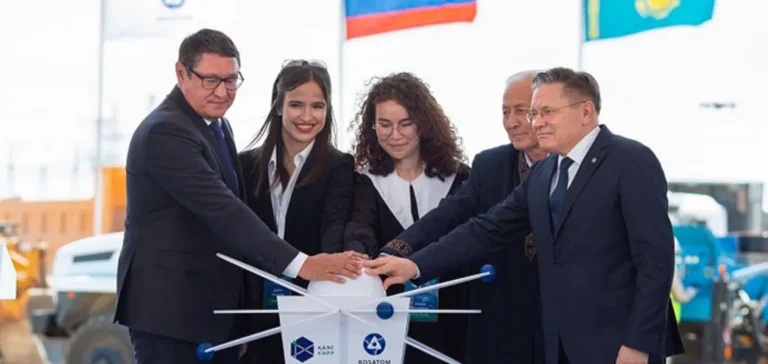Preliminary engineering work has officially started in the Almaty region of Kazakhstan with the launch of surveys aimed at identifying the optimal location for the country’s first nuclear power plant. The event was attended by the Director General of Russian state corporation Rosatom, Alexey Likhachev, the Chairman of the Agency of the Republic of Kazakhstan for Atomic Energy, Almasadam Satkaliyev, and the Akim of the Almaty Region, Marat Sultangaziyev. Teams began by drilling the first exploratory borehole and collecting soil samples.
An 18-month drilling programme
The programme includes drilling at least 50 boreholes, each between 30 and 120 metres deep. These surveys will assess seismic stability, hydrogeological characteristics, and other parameters essential to the safety and reliability of the future facility. According to Asset Makhkambetov, Deputy Chairman of the Kazakh Atomic Energy Agency, the studies will last 18 months and will focus on three potential areas, each undergoing detailed analysis. The final decision on the site location will be made upon completion of this work.
An international consortium for a strategic project
In June, Rosatom was appointed to lead an international consortium to build this high-capacity plant. The Kazakh Atomic Energy Agency had previously shortlisted suppliers including Rosatom with its VVER-1200 reactors, China National Nuclear Corporation (CNNC) with the HPR-1000, Electricité de France (EDF) with the EPR1200, and Korea Hydro & Nuclear Power with the APR-1000/APR-1400. The government also announced that CNNC will build the country’s second and third planned nuclear power plants.
A country with a strong nuclear tradition
The world’s leading uranium producer, Kazakhstan already operates three research reactors and ran a BN-350 fast reactor near Aktau for 26 years. Kazakhstan Nuclear Power Plant (KNPP), a subsidiary of the Samruk-Kazyna sovereign wealth fund, has been designated as the future operator and has conducted preliminary studies since 2014. A national referendum approved the construction plan, with over 70% voting in favour. The government’s target is for nuclear power to account for 5% of the national electricity mix by 2035.






















